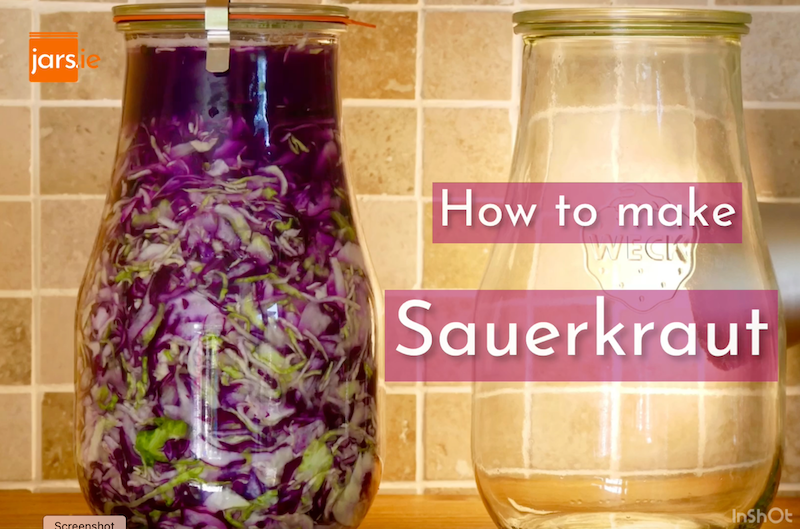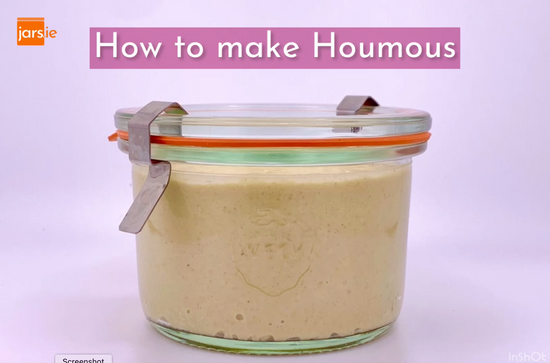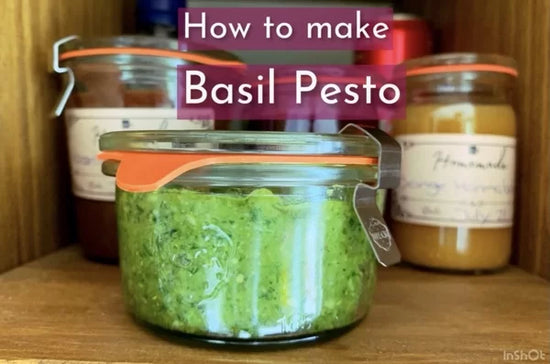Full recipe for traditional German Sauerkraut
Growing up in Germany, of course, I am used to eating Sauerkraut (a lot of Sauerkraut actually). I remember that we used to make our own Sauerkraut at home in large vessels that would last for a long time. Well, as it tasted really nice, it actually didn’t last that long as it was eaten quickly. Learn how to make traditional German Sauerkraut here.
Over time, I was too busy to take care of making Sauerkraut. Instead, I switched to shop-bought versions. Only when starting to care more about the food I was eating and re-discover fermentation and all the benefits of homemade, traditionally fermented foods to your gut health and your overall health, I started to realize how good homemade Sauerkraut actually is. And, of course, it tastes great, and it’s very simple to make.
Shopping List for your homemade Sauerkraut
- Cabbage, 3 heads (white or red or a mix of white and red). Traditionally, only white cabbage would be used
- Juniper Berries (2tbsp)
- Caraway Seeds (1.5 tbsp)
- Salt (3tbsp)
Needed equipment for traditional German Sauerkraut
- Weck Tulip Jar 2700ml:
https://jars.ie/collections/weck-tulip-jars/products/weck-tulip-jar-2700ml
How to make traditional German Sauerkraut
1) Shred the cabbage and leave for 30min
You can use a shredder or just cut the cabbage into small pieces with a knife.
Add salt and leave for 30min until the cabbage starts sweating and softening.
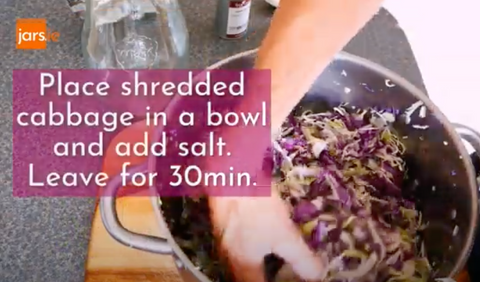
Place shredded cabbage in a bowl and leave for 30min
2) Add ingredients and mix
Add the juniper berries and caraway seeds to the cabbage and mix well.
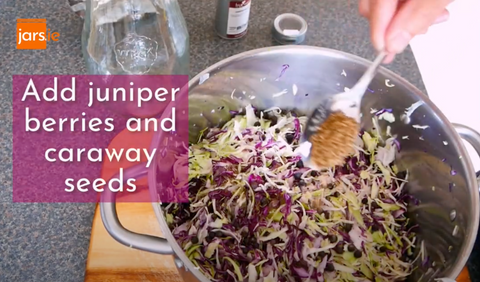
Add juniper berries and caraway seeds
3) Fill the jar
Start filling the jar with a handful of the cabbage mix. Use your fist to press it down hard, until liquid is pressed out.
Repeat this process until the jar is nearly completely filled with the cabbage and liquid sit on top.
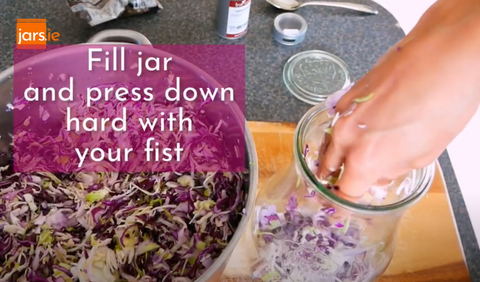
Fill the jar, pressing out the liquid
4) Use a weight to keep cabbage submerged
I usually use the lid (or 2) of a smaller jar. Just place it on top so that the cabbage is completely underwater.
Leave about 1cm of space on top of the jar.
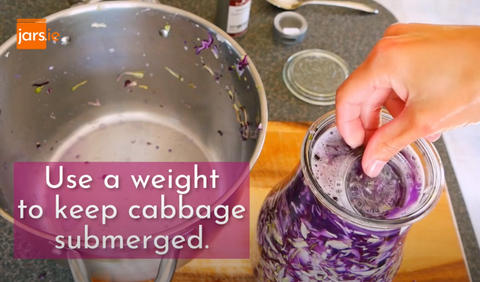
Use a weight to keep cabbage submerged
5) Close the jar
Wipe off any small pieces or liquid from the top of the jar.
Use the lid, rubber ring, and clamps to close the jar.
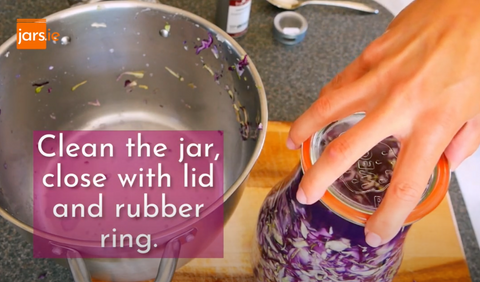
Clean the jar and seal
6) Ferment
Leave the cabbage to ferment for at least 3 weeks.
After 3 weeks, taste the Sauerkraut. If it’s to your taste, place it in the fridge to avoid further fermentation. If it’s still too sweet, let ferment for another week and taste again.

Leave for at least 3 weeks
See the full video below or on YouTube:
Full video on YouTube: https://www.youtube.com/watch?v=NRBZZuCTnS0

